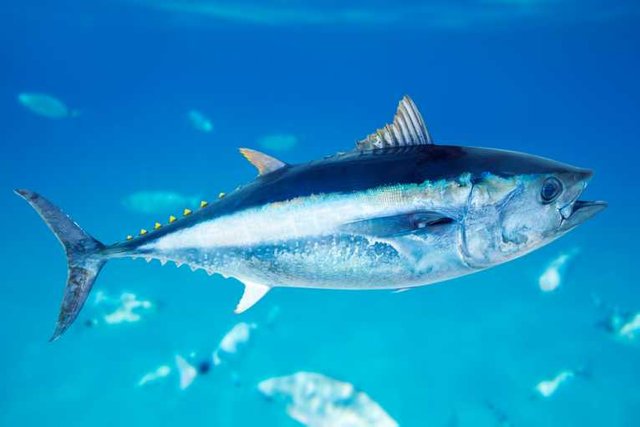In this article I will take a look at the Scarcity Principle of economic theory and how it relates to endangered species and profiting from animals nearing extinction.
What is the Scarcity Principle?
The Scarcity Principle is very simple and It is one of the first things you will learn in an economics class. The principle states that: when there is a limited supply of a good and a high demand for that good, there will be a mismatch between the supply and demand for that good. As a result, the price of the good will rise until an equilibrium is reached between both the supply and the demand. Only those who can afford the high price will be able to afford the good.
In the case of an endangered species, the price will continue to rise the more endangered it becomes and the price can be expected to rise exponentially once it becomes extinct.
The Bluefin Tuna

The Bluefin Tuna, (Thunnus thynnus) aka the northern Bluefin tuna is the Ferrari of the Oceans reaching speeds of 40 miles per hour (64 km/h) and able to dive to depths of 500 meters (1,600 ft). Individuals can exceed 450kg (990 pounds). They are native to both the western and eastern Atlantic Ocean as well as the Mediterranean. They are now extinct in the Black Sea and are critically endangered in other Oceans.
The fish that once sustained Roman armies is nearing extinction due to over fishing. The Bluefin Tuna fishing fisheries are one of the world’s most lucrative commercial fisheries due the Japanese raw fish market where Bluefin tuna are used in sushi and sashimi dishes. The Japanese consume 80% of all Bluefin tuna caught worldwide with majority of global catches being shipped to Japan for consumption. Medium and large sized Bluefin tuna are the most heavily targeted individuals and bring in the most money.
Bluefin tuna and Scarcity Principle
In July 2016 a single Bluefin tuna was sold for a record $1.76m (£1.1m) at auction. This was nearly three times the previous high. The specimen weighed 222kg (489lb). It is clear that as the demand for sushi increases and the supply of Bluefin tuna continues to decline there will certainly be more record auctions in the future. The highest bidder and president of the Kiyomura Co which operates the Sushi-Zanmai chain said that “the price was a bit high” and that he wanted to “encourage Japan”. Encourage Japan to do what? Eat a species to extinction? To commoditise an animal in decline?
Profiting From Extinction
When the Bluefin tuna becomes extinct will not be for nothing. There will be many Japanese willing to pay anything to get their chopsticks on a piece of tuna. Luckily for them, Mitsubishi , being the visionary multinational corporation that it is has been working very hard to corner the world’s Bluefin tuna market. The company has managed to gain a 40% share of the market and freezes the tuna at -60C to be sold at a later date (once Bluefins are extinct). The tuna will be resold at very high prices.
Buy your Mitsubishi shares now!
Attempts are being made at farming Bluefin tuna. The farming of tuna is still in its infancy and it very costly. At the moment it is currently unsustainable and even if it was to become a successful practise the only incentive to farm the species would be due to the fact that is it endangered.
Aftermath of Apex Predator Decline
The decline of apex predators such as Bluefin tuna has a devastating effect on the ecosystem. It can increase the numbers of mesopredator species which in turn has an effect on lower level prey species.
When species of large sharks declined due to overfishing for shark fins it resulted in an increase of smaller shark species and skates. This then led to a decline in fish and shellfish stocks. The decline and eventual extinction of the Bluefin tuna will not have a positive outcome for the environment.
Conclusion
Corporate profits are more important than our planet. Yellow fin tuna can be made extinct after Bluefins.
I watched a movie named Racing Extinction. Have you ever seen it? We really are destroying ourselves and everything around us.
Downvoting a post can decrease pending rewards and make it less visible. Common reasons:
Submit
No I haven't seen it but I will put it on my watch list. Yes we are. 10,000 years ago humans made up 2% of biodiversity and today we and our livestock make up 90% of biodiversity.
Downvoting a post can decrease pending rewards and make it less visible. Common reasons:
Submit
Yeah I know.. We should be ashamed
Downvoting a post can decrease pending rewards and make it less visible. Common reasons:
Submit